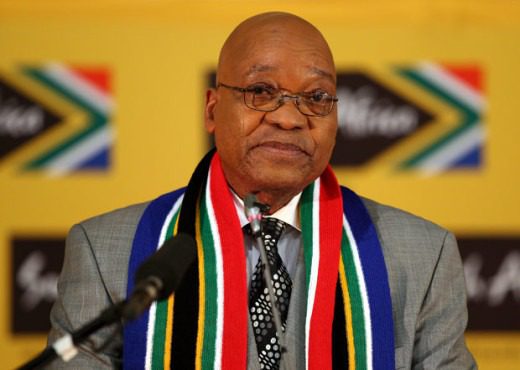Democracy & Governance
Who Watches The Watchers -By Abolaji Adeniran

A friend had shared with me his admiration for a popular Latin rhetoric; Quis custodiet ipsos custodes? Which means WHO WATCHES THE WATCHERS? This axiom has always been an issue in governance, politics and leadership in general. However, the adoption of democratic tenet by both developed and developing world has provided an avenue for an institution of government to check on the activities of other institutions of government so as to prevent a country’s slide towards anarchy. In this case, these available institutions serve as watchdogs over each other. But, history has proven that either of these institutions might overly become powerful and subsequently overpower other institutions of government. However when this occur, the society can then beckon on the fourth estate of the realm for help.
The fourth estate of the realm or fourth estate of government according to Wikipedia refers to the press and news media both in explicit capacity of advocacy and implicit ability to frame political issues. Though it is not formally recognized as part of political system, it wields significant direct or indirect social influence and this explains the core role of media as a watchdog in any democratic society. Chapter 2. Section 22 of the Nigeria 1999 constitution also noted that “the press, radio, television and other agencies of the mass media shall at all times be free to uphold the fundamental objectives contained in this chapter and uphold the responsibility and accountability of the government to the people”
The mass media serves as a fundamental component in any democratic institution and the potency of democratic practices in any society lies in the press freedom enjoyed in such society. The mass media is an important institution that serves as a beacon of freedom, a check on authorities and a driver of agenda for development and progress of the society. This probably explains the excitement that greeted the signing into law of Freedom of Information Act (FOI) by the immediate former Nigerian president; Dr. Goodluck Jonathan. The enthusiasm was premised on the fact that FOI Act would help strengthen our nascent democracy and bring to an end the clandestine manner in which governmental operations are been carried out which often than not breeds corruption.
Nine years after the significant signing into law of the FOI there has been consensus among stakeholders that the country’s journey towards press freedom is still miles off as the powerful watchdog has now been reduced to an ordinary watched dog while the media deregulation in Nigeria has not really served to enhance media freedom. According to the International Press Centre (IPC), more than 40 journalists in the country have suffered retributions in one way or the other between January and August 2020. The government disposition towards freedom of thought in the country appears to be quite contemptuous. Government spokespersons have at different times asked Nigerians to thank their luck that the country practice democracy while often describing critics of the government as “wailing wailers”. Gangster behaviour like this laid credence to the fact that administrators in the country are really not in tune with democratic ethos and governance practice of the 21st century.
Government clampdown on the press, journalists and media outlets critical of its policies with increased mediatization, censorship, anti-social media policies, hate speech laws as well as arrest, intimidation and sometimes killing of journalists and pressmen are political testimonies to the fact that the assumed watchdogs are actually watched dogs. The obvious fact that people in place of authority, regardless of whether they are government or individuals wield a lot of power, demands a critical and watchful eye to scrutinize and assess them against the likely abuse of the trust of the public.
Thus, it becomes regrettable to see a democratic government that rode to power upon the magnanimity and tolerance of its predecessor to now suddenly become so intolerant to people’s opinions and views especially as it relate to governance in the country. The security agencies in the country that appears to be overwhelmed by the increased spate of insecurity in the country suddenly become active when people pour out their frustration against a government that appears unresponsive.
In the light of the foregoing, who now watch the watcher or who will draw the attention of the government to the obvious lacuna in the administration? The government must understand that the beauty of democracy lies in the diversity of opinions and these different shades of opinions create a fertile ground for any serious government to truly know how popular its policies are and the only means to this is through a free mass media. It is pertinent to note that, for media to perform their role as watchdog in the society; they must be free from all kinds of internal and external interference and give no room for pressures that could stand in their ways.




















